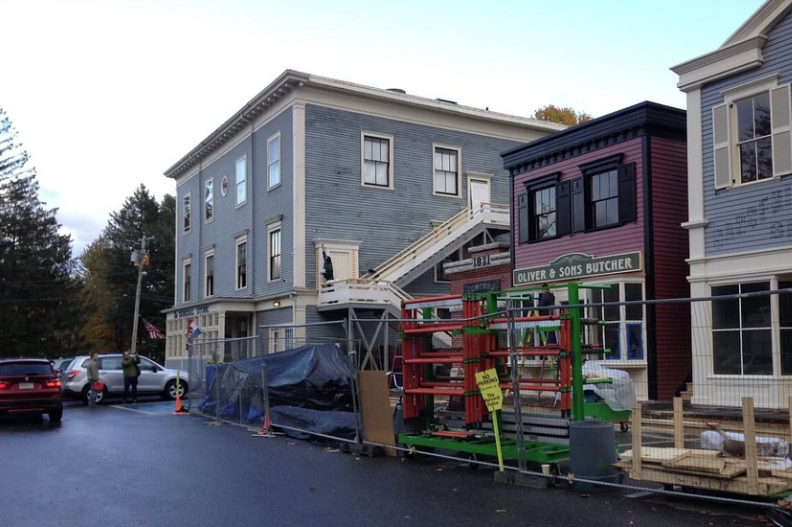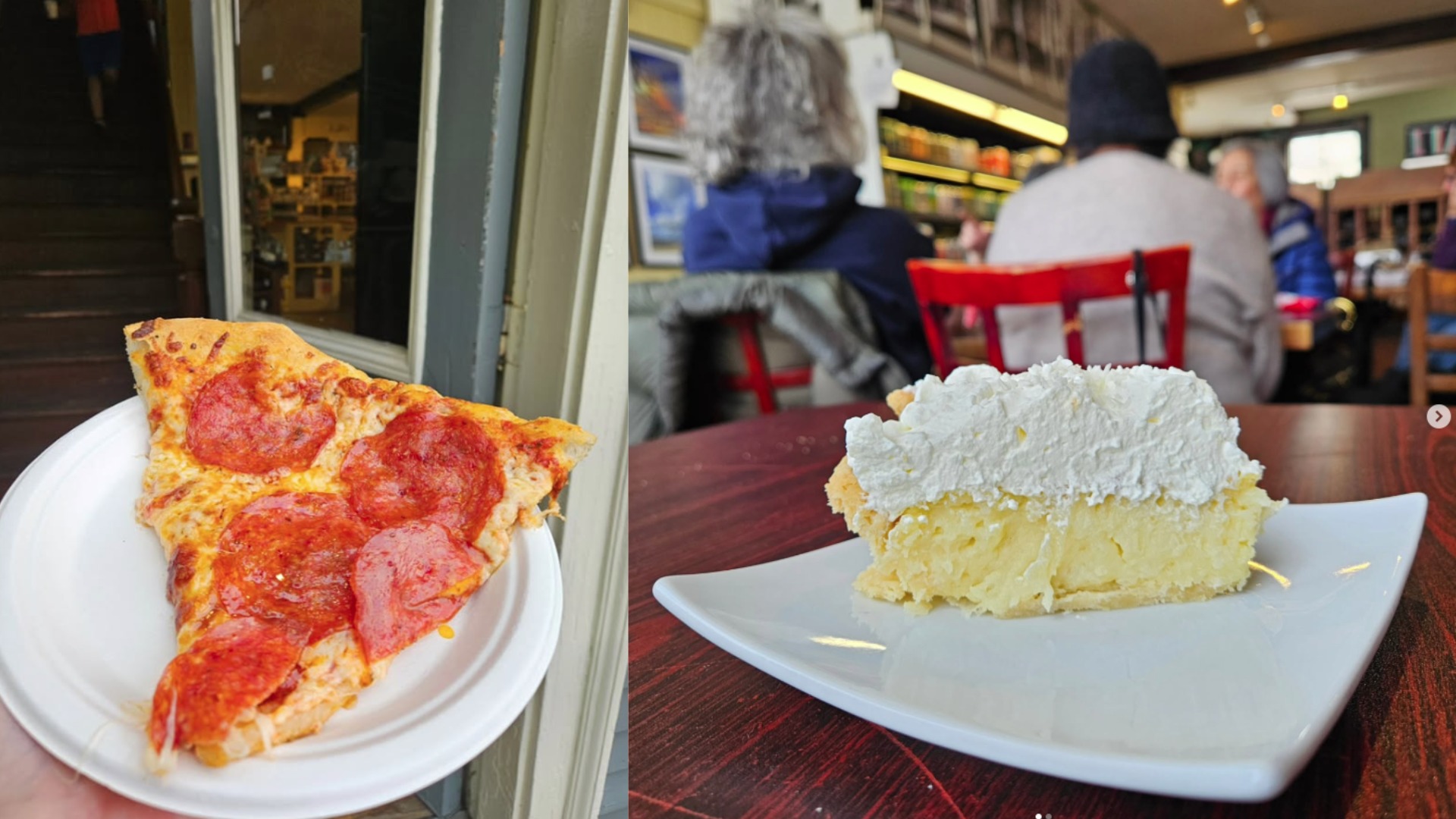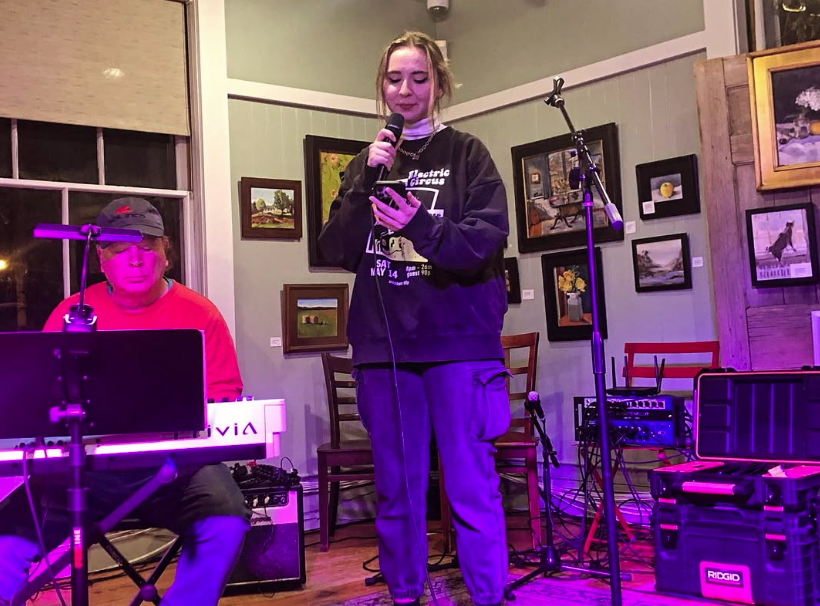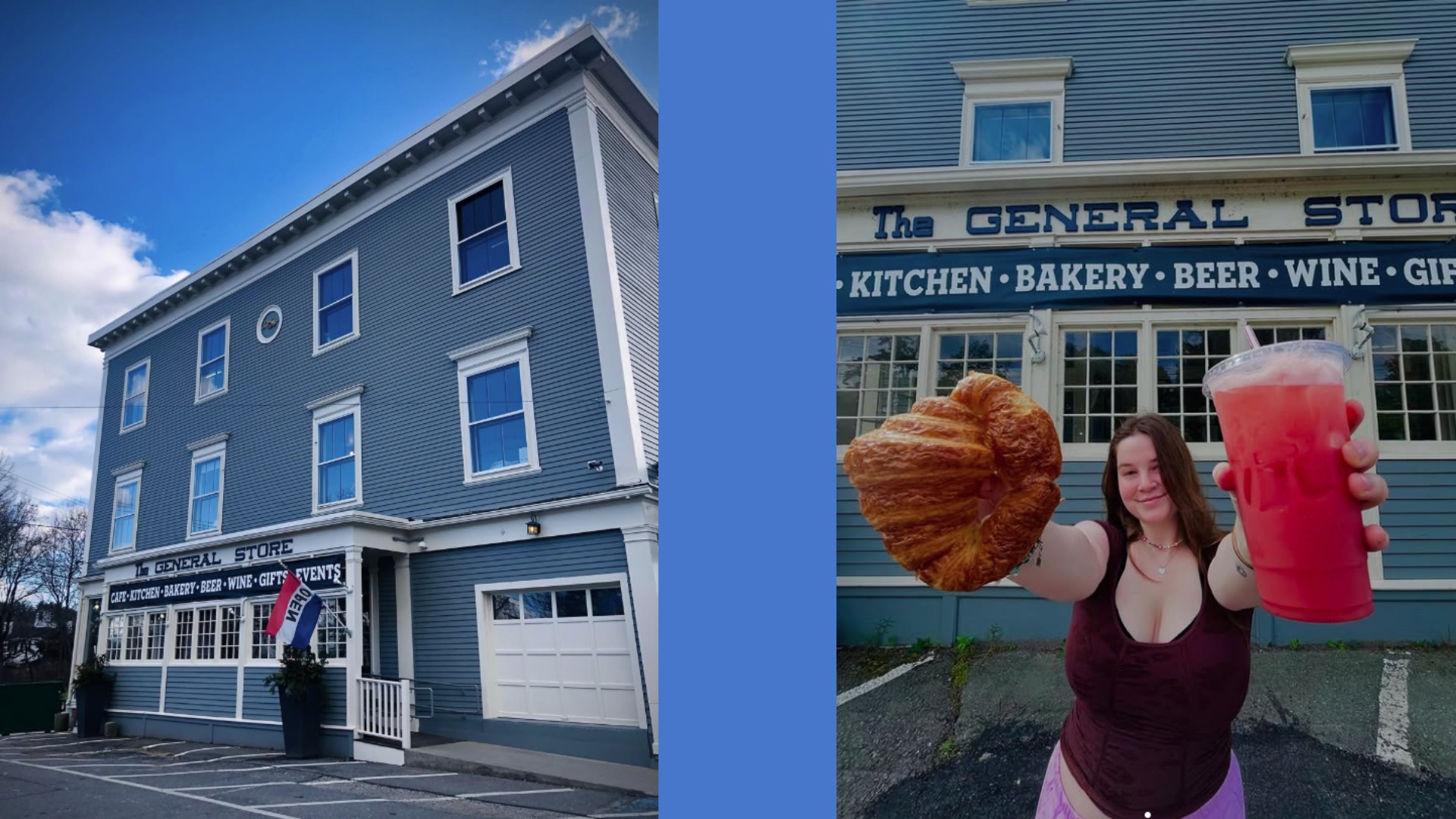Back before air travel and the evolution of the modern global shipping network, the general store was the only retail game in town. Tools, food, toys, household items, you name it—aside from some specialty items, chances are you bought it all at the local general store, which also functioned as a community center of sorts.
You don’t see that much these days, but the Harvard General Store is a unique exception. It’s literally the only store in the center of the affluent town of Harvard, where horse farms, apple orchards and elite schools define this small burg that sits 40 minutes west of Boston. The Harvard General Store has been defining the town for a long time, too, dating all the way back to the early 1800s.

The Harvard history isn’t what you think
Harvard the town is often confused with Harvard the university (i.e., the one that’s currently under siege), but they’re two different entities. The story of the Harvard General Store dates back to 1816, when the inhabitants of the town of Harvard sold a small piece of land that was part of the town common.
The parcel of land was separated from that common by roads leading to the neighboring town of Bolton, along with Still River, which is still something of a town-within-a-town inside Harvard. The buyer was Jason Bigelow, a carpenter who built a quaint little structure he designed to be used exclusively as a store. (All of Harvard could be considered quaint, if you’re looking to capture the town vibe in a single word.)
If you think the advent of this store was part of the town’s origin story, guess again. Harvard was originally settled as a farming community back in 1658, and the town was officially incorporated in 1732.
At this point you’ve probably noticed that that makes Harvard the town older than the United States of America the country. So how did that happen, exactly?
The answer to that question is a bit of a winding road. At one point the town was known as Harvard Shaker Village. Then it became the home of a utopian transcendentalist center called Fruitlands, which was documented by none other than Louisa May Alcott. There’s still a Fruitlands museum in Harvard, and the town also housed an observatory.
The store burned to the ground back in 1850, but Harvard is full of stubborn New England types who were determined to resurrect it. One was the new owner, a fellow named Thrumbull Bull bought the store later that year at a price that definitely doesn’t line up with current real estate prices.
“Bought a piece of land with John Farwell where the store was burned, measuring 30 x 40 ft and the privilege for shed which was granted by the town for which we paid $132.50 one-half each. We bought it for a building for the Odd Fellows who wished to take it and erect a building for a store on the first floor, shops or offices on the 2nd and the Odd Fellows Hall in the attic.”
We won’t comment on the oddness of the Odd Fellows, other than to define them as a fraternal order founded on a motto that read, “Visit the sick, receive the distressed, bury the dead, and educate the orphan.”

Updating the history
None of this happens in the modern version of the Harvard General Store, of course—at least not by design. Appearance-wise, isn’t all that different from what it looked like way back in the day. The building itself still looks much the same, although it is up to modern building code standards.
But the store faces the same challenges as any other old school, brick-and-mortar retailer when it comes to staying relevant and contemporary in an online world in which our devices often drive our shopping habits.
One reason the Harvard General store maintains this relevance is that most of the 5,000 residents have a vested interest in keeping the town looking much the same as it did back in the 19th century. So much so, in fact, that if Thornton Wilder’s famous small-town play, “Our Town,” hadn’t been filmed just up the road in Peterborough, New Hampshire back in 1940, it’s easy to imagine it taking place in Harvard.
As for the current version of the Harvard General Store, once you walk in, your retail experience becomes very different. Modern, and then some. Imagine a boutique coffee shop that puts the likes of Starbucks to shame, along with a daily breakfast and lunch menu that is the focal point for residents to discuss the local gossip, much as they would have a century or two ago.
What they’re drinking and noshing on will also be very different. Think of a coffee bar with dozens of offers, some exotic, others overtly caffeinated. Custom cakes and pastries that cater to a very modern clientele, as offerings like “Chocolate Zucchini Vegan Gluten Free Mini Bundt Cake” clearly attests.

An event calendar that says “community”
The final piece of the modern general store puzzle for the HGS is the event calendar. Not only does this general store transform into a pizza parlor on Fridays and Saturdays, it includes transformational yoga as a staple, not to mention an open mic night before a very forgiving audience.
This brand of connection with the community is especially essential in the digital age. The town newspaper, which is put together and published upstairs, still comes out regularly, even in an age when diluted, online local coverage has become a staple.
Finally, the store is also a hiring hub. Local students from the nearby high school, the nearby Bromfield School—which is annually rated one of the best in the state—often work behind the counter, either on weekends or as a summer job. It’s an impressive web of ongoing connections that gives the Harvard General Store a serious chance to last for yet another century, both as a brick-and-mortar establishment and an online phenomenon.
About the Author
Bob McCullough is a freelance author and journalist who has published dozens of novellas and novels, and his journalism has been featured in high-level publications such as the Boston Globe, the LA Times, The Sporting News and NBCSports.com. He is the author of the “Greatest Day” sports series, which covers the NFL, MLB, golf and NASCAR, and he’s an accomplished marketing and content writer as well. His work can be viewed at found at bobmcculloughbooks.com, https://www.amazon.com/stores/Bob-McCullough/author/B001HOKAUI and https://www.themanual.com/users/bmccullough/.

